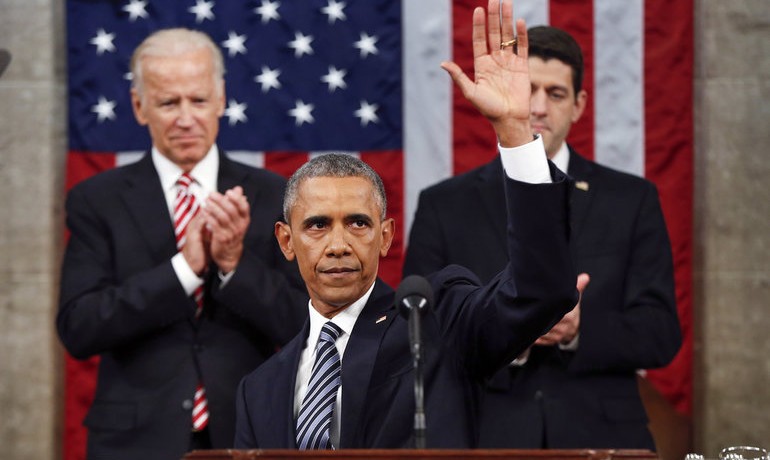Right Track or Wrong Track: Analyzing the State of the Nation
By Neil A. Carousso
Americans yearn for change and a government that works in unison.
In analyzing the data from the Pew Research Center, NBC News/Wall Street Journal, CBS News/The New York Times, Bloomberg Politics, CNN/ORC and other polls about whether or not Americans are satisfied in the direction the United States is heading, overall American citizens are always dissatisfied since the start of the poll dating back to as early as the 1990s at several organizations. Specifically looking around September 11, 2001 when our country faced the worst terrorist attack in the nation’s history, Americans were at a high point in regards to satisfaction at 57 percent, according to the Pew Research Center. That may be surprising, but it could be the mentality that we bound together to fight against terrorism and attack those who infiltrated our country. Since 2003, however, the satisfaction rate has been sharply on the decline, reaching as low as 17 percent for three consecutive poll periods in 2011.
Currently, there is growing concern and fear about ISIS radicalizing our own citizens and infiltrating our country. Many Americans feel that we are most likely the main target for ISIS following the recent devastating attacks in Paris. ISIS has even published recruitment videos online featuring our own politicians like 42nd President Bill Clinton and GOP front-runner Donald Trump indicating that they are planning to attack the U.S.
In the wake of these ISIS-inspired threats and attacks like the San Bernardino shooting and other mass shootings like the Sandy Hook Elementary School shooting, President Barack Obama has voiced his opinion for the need for stricter gun laws and continues to blame Congress failed legislation. That leads to the larger issue: Americans are not content with the fractured relationship between the President and Congress that has led to a government shutdown during Obama’s presidency and a number of executive orders without the normal checks and balances required to pass legislation. Many Americans would put fear and incompetency at the top of their lists as to why 72 percent, according to the Pew Research Center, are dissatisfied with the current state of the U.S.
Donald Trump, the GOP presidential front-runner has campaigned on the fact that he is not a career politician and has been a successful and competent businessman who would run the country like a business and make profits for the country. Other GOP candidates like Ted Cruz have been against the political establishment as well, but Trump’s harsh and consistent stances on immigration and national security have resonated with a large amount of voters who are dissatisfied with Obama’s job as president and feel a sense of patriotism in Trump’s rhetoric.
Furthermore, Democrats may have a difficult time retaining control of the White House in 2016. Many believe the political left has been too soft on security. For instance, President Obama plans to accept 10,000 Syrian refugees into our country where we do not have a new terrorism alert system in place, although the FBI is currently working on one, and we lack substantial background information on the refugees making the vetting process very difficult. The Paris attack was infiltrated by a suspected refugee who happened to get across a weak border in France. Latest intelligence has indicated that ISIS did research on what borders were less secure and the refugee passed background checks. Many Americans wonder: why couldn’t that situation happen in the United States? Citing the recent San Bernardino shooting, the suspected shooter Tashfeen Malik, who was a Pakistani woman killed by police after the mass shooting, was in the United States on a fiancée visa, which does not require an extensive background and vetting process. All of these ongoing national security concerns are major reasons why Americans are dissatisfied in the direction the country is going and can support why Mr. Trump or another GOP candidate may have a better chance of taking the presidency in 2016.
Recent history shows that when a president serves two terms in office, sometimes the opposite party will win the next election because of the need for change. For instance, most recently, after Republicans controlled the presidency from 1981-1993 between Ronald Reagan and George H.W. Bush over 3 terms, Democrat Bill Clinton was elected and served two terms before George W. Bush served two terms, himself. And President Obama is finishing his second term in office. However, if this trend does not continue and the Democratic front-runner Hillary Clinton succeeds Obama, Republicans argue that Americans can expect the same level of dissatisfaction, especially as Clinton made it clear at the last Democratic debate, televised by NBC News, that she will fight to maintain the same policies President Obama has initiated.
Even if Clinton decided to separate herself from Obama as we near the general election, if she is the Democrat nominee, one cannot disregard the fact that she served as secretary of state under President Obama for four years before resigning due to illness. Not only have we faced turmoil in foreign relations, but also her illness may speak to the fact that she may not be able to handle the stresses of the presidency if she had to resign from her secretary of state position.
The national mood is certainly affecting Clinton and the other Democratic candidates by voters who want a tough president who will keep the country safe and reform immigration by securing our borders.








